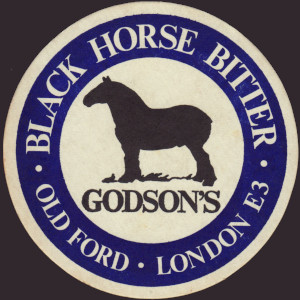
Formerly Godson Freeman & Wilmot. Includes information for Chudley & Co.
Closed breweries
Original site (Godson): Black Horse Brewery, Atherden Works, Atherden Road E5 0QP (Hackney)
Second site (Godson): Albany Works, Gunmakers Lane E3 5SB (Tower Hamlets)
Original site (Chudley): 1a Saltram Crescent W9 3JR (Westminster)
Last site: Black Horse Brewery, 84 Chisenhale Road E3 5QZ (Tower Hamlets)
First sold beer: November 1977 (Godson Freeman & Wilmot), July 1981 (Chudley)
Ceased brewing: 1987
Godson Freeman & Wilmot holds the distinction of being London’s first modern microbrewery and the first new brewery in the city since Guinness in the 1930s, as well as perhaps only the second entirely new standalone microbrewery in the UK.
It was founded by Patrick Fitzpatrick, a young entrepreneur whose family ran Murphy’s, a small chain of pubs in London and Dublin, credited with popularising Draught Guinness in the UK capital. Spending a year in India in the mid-1970s, Patrick read an article on British family brewers in the Illustrated London News, which inspired him to return to the UK and set up a brewery.
Patrick sought the assistance of former Whitbread brewer John Wilmot, who had become an independent brewing consultant when his employer ceased production in London in 1976. Deciding he needed a traditional, English-sounding partnership name with three components, as with several famous London breweries of the day, Patrick used the names of the brewery’s hop merchant and transport manager, alongside John’s, to yield Godson Freeman & Wilmot.
The brewery was initially based in part of a disused factory in Clapton that was earmarked for demolition. Equipment was recycled from Fremlins, Hancocks and Whitbread. A sister distribution company, Godson’s Ales, ran alongside the brewery and helped sustain the business, shipping beer from local and regional family brewers into London for sale in the growing number of ‘real ale’-friendly pubs
Godson’s were forced to move in June 1978 when Hackney Council accelerated its redevelopment plans, and Tower Hamlets council offered accommodation in a disused factory in Bow, just outside Victoria Park. But this turned out to be unsuitable, and in April 1979 it moved again to part of a former furniture factory nearby in Chisenhale Road, with an annual capacity of around 12,500 hl.
Beer was mainly cask, primarily bitter: Wilmot Hop Cone (around 4%), Anchor (also known as Best Bitter, around 4.2%), and Black Horse (around 5%). There was also a strong stock ale (around 8%), also available in bottle, as was Anchor.
As with many early microbreweries, quality and consistency proved challenging, particularly in warmer weather, but the brewery built up a following and in the early 1980s its beers were even available in pioneering beer pub Gollem in Amsterdam.
In 1982, Patrick planned a takeover of another of John Wilmot’s clients, Wiltshire microbrewery Tisbury, which was struggling with technical and financial problems. Intending to relocate production there, he invested time and money in attempting to restore Tisbury to working order, brewing the company’s beers in London in the meantime. But the deal fell through when Tisbury’s owners sold to someone else. The distribution side also suffered when some of the key brewery partners began direct deliveries to London.
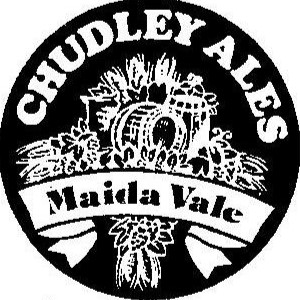
Meanwhile, Chudley & Co was founded by former Courage trainee Tim Chudley in 1981 in a carpenter’s shop attached to a residential house in Maida Vale. It was London’s third standalone microbrewery, though several brewpubs had opened in the meantime. Tim designed the 8 hl kit himself.
Chudley’s was almost entirely a cask brewer, with its repertoire in 1983 encompassing Local Line Bitter (around 4%) and Lords Strong Ale (around 5%), plus a strong winter seasonal, Draught Excluder (around 7.5%). Chudley also struggled, and in 1984 closed and merged with Godson’s to create Godson & Chudley, with all production in Bow.
Despite all the difficulties, the company completed a decade of operations before finally closing in 1987, with Patrick Fitzpatrick leaving brewing. When interviewed for their 2014 book Brew Britannia, he told Jessica Boak and Ray Bailey that he ‘was so devastated by what happened to the brewery — all that effort, only for everything to go so badly wrong’. He deserves wider recognition as a true pioneer of microbrewing both in London and the UK.
The rights to the name were sold to Salisbury family brewer Gibbs Mew, which contined to brew Black Horse and Local Line for a while. When Gibbs Mew closed in 1997, its brands were sold to Refresh UK, the company set up to take on some former Watney brands, so it’s conceivable Carlsberg now holds the Godson’s and Chudley’s trademarks.
The original Godson’s Clapton site, at the western end of Atherden Road on the north side, is now occupied by housing and car parking. The Chisenhale Road site still stands and is used as a dance studio.
I’m grateful to Boak and Bailey for some of the information on this page: see also their post here.
Updated 3 June 2024.
More London breweries
Closed London breweries

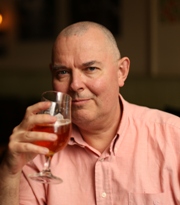
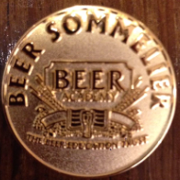
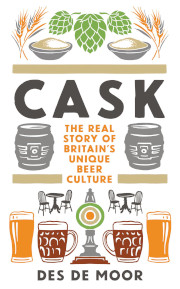
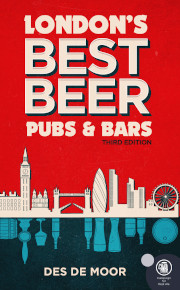
Leave a Reply